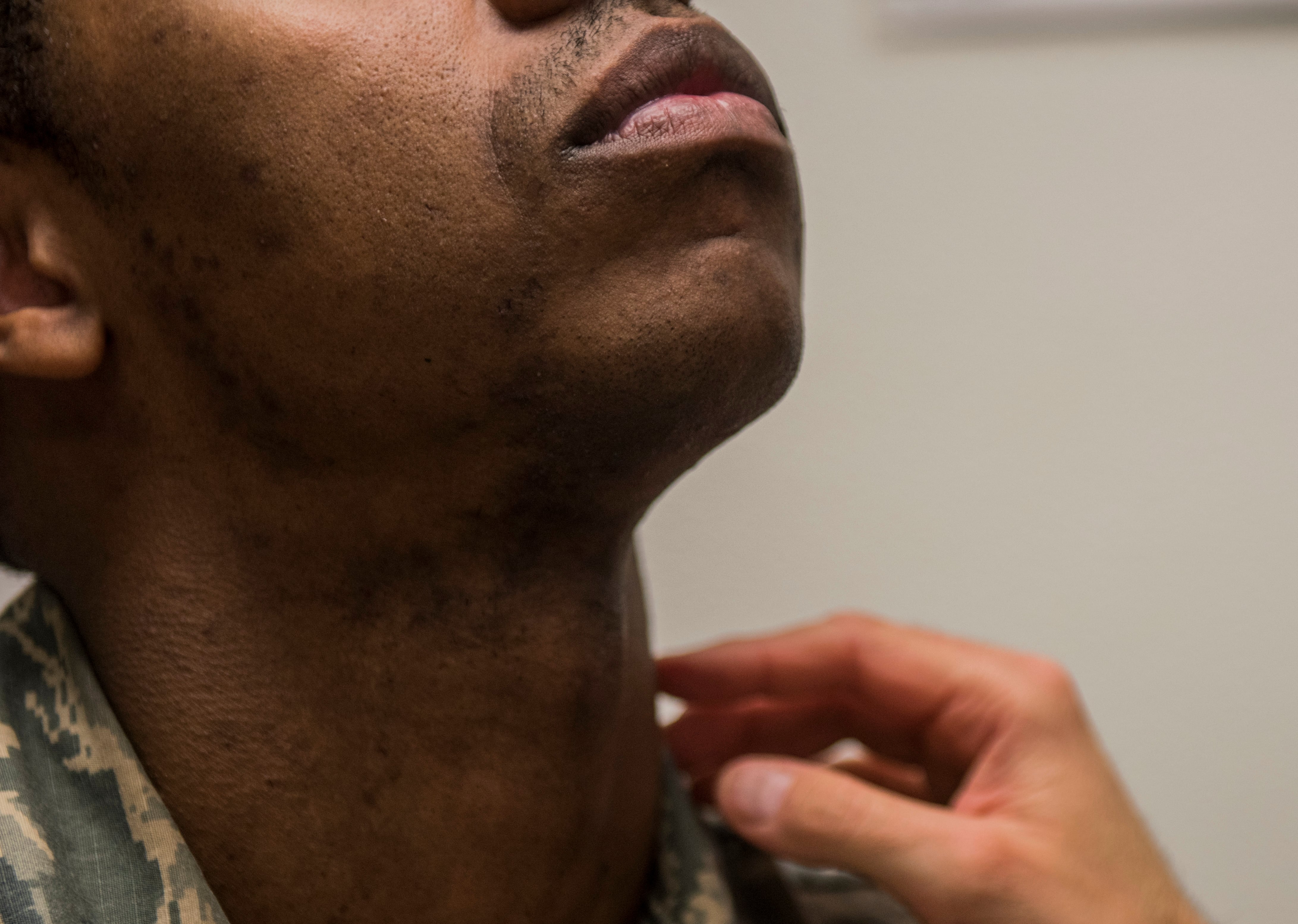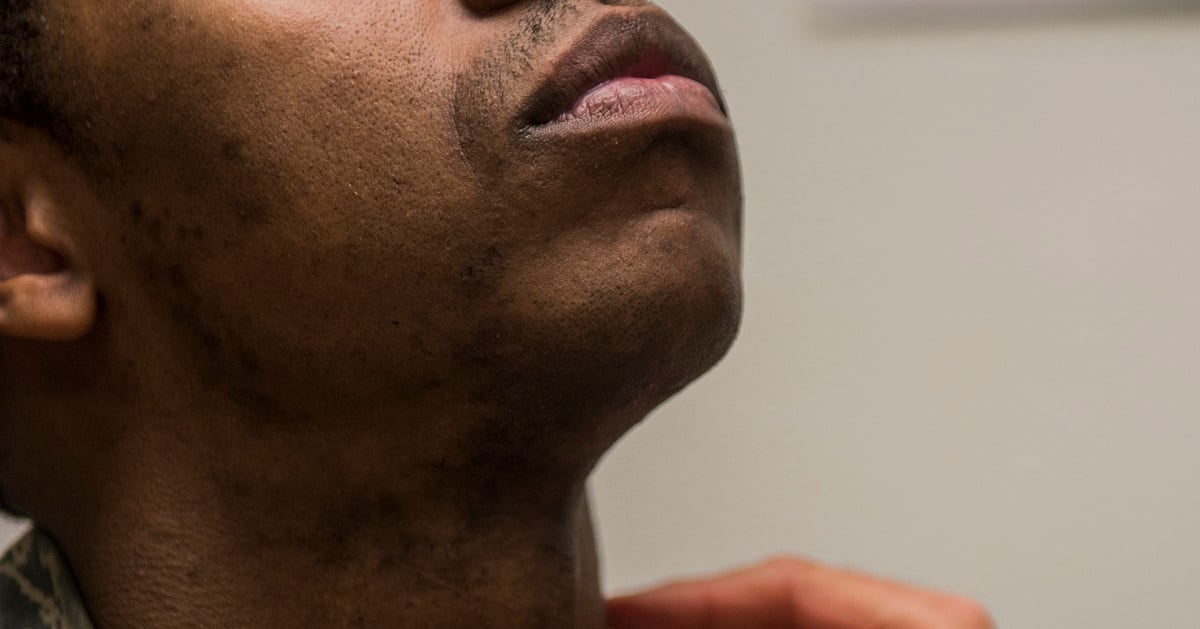On July 26, 1948, President Harry Truman issued Executive Order 9981, mandating the end of racial segregation in the armed forces. While this did not end racism within the ranks, it constituted a monumental step towards racial equality. President Truman recognized that segregation was abusive, regressive and actually worked against military readiness by functionally excluding an entire race from the upper echelons of the U.S. Armed Forces.
Recently published medical research — and overwhelming anecdotal evidence — has elucidated a long-standing source of racial discrimination in the Air Force, and very likely all military branches, on par with the destructive nature of segregation: the facial hair policies.
RELATED

Current military policies require all male members to maintain a clean shave whenever in uniform, unless waivered. However, a genetic difference in hair growth in some individuals makes this task impossible as it will result in a painful ingrown hair condition called pseudofolliculitis barbae, or PFB, which can lead to permanent scarring of the skin.
A waiver system exists for those affected by PFB where military medical providers can make recommendations to commanders that a member be allowed to grow a limited beard, typically between 1/8 and 1/4 of an inch, that will preclude the development of further painful bumps. While this solves the issue of the shaving bumps, these waivers create a secondary problem by creating a subclass of military members who are seen and treated differently.
In July 2021, a study conducted by Air Force researchers showed that members on shaving waivers were promoting slower than their counterparts, not to mention the broad exclusions from special duties and opportunities that these members regularly endure. The deleterious effects of shaving waivers are comparable to those of segregation for one simple reason: Black and African American airmen are affected by PFB far more than members of other races and therefore require these waivers more often. Despite making up 15% of the Air Force, Black airmen hold 65% of all shaving waivers and the statistics are similar across the rest of the military. This proven and systematic racial discrimination has negatively impacted the promotions for tens of thousands of airmen currently on active duty and untold numbers of service members who have come before.
Never, since the time of segregation, has a policy so objectively and provably disenfranchised a single racial group within the U.S. Armed Forces. And there has never, since 1948, been the opportunity to right such a historic wrong.
The requirement to be clean-shaven and the resulting waiver system have created a stigma of being different for those who must be on those waivers. Waivers are not seen as a positive attribute when in uniform and a member is often unable to earn a rating of exceeding the standard. This has inhibited a large portion of Black and African-American service members from achieving senior enlisted and officer ranks at the same rate as their peers and should be addressed now.
Amid a lively public dialogue, most military audiences are overwhelmingly receptive to the proposed change. Several active duty units and even state National Guards have raised their hands to lead beard pilot programs, if approved. Yet some naysayers center their arguments around professionalism and readiness, voicing thoughts like “over my dead body” or “maybe they just don’t deserve to be promoted” or they “look like utter garbage.” There have been comparisons to the Taliban and a false narrative that no congressmen, CEOs and broadcasters have facial hair. None of these arguments hold water, but it demonstrates the depth of the cultural challenge within military leadership circles.
Other than professionalism, the primary argument voiced against allowing beards is a theoretical risk to readiness as facial hair could interfere with the seal of a gas mask. This argument, however, withers under even mild scrutiny and is simply a red herring. Special operators wear beards in combat, most career fields do not require daily use of a gas mask, many service members with beards have demonstrated the ability to seal a gas mask, and there are no published studies on the impact of 1/4 inch or less of facial hair on any gas mask currently used by the Department of Defense. In addition, our NATO allies and other partner nations allow their members to have facial hair with no demonstrable impact on readiness.
The Air Force is leading the way with recent policy changes to improve its treatment of shaving waiver holders, including allowing them to perform in Honor Guard ceremonies. We must continue down this path of greater inclusion. Let’s remove the stigma and discrimination of beards and improve recruiting and retention. The allowance of short beards will free time and resources towards warfighting and readiness while continued adherence to a clean-shaven standard will perpetuate known racial discrimination. President Truman saw his decision to end segregation in this light: Making this decision was not universally popular but not making it was morally unjustifiable.
We can no longer remain silent about the decades of discrimination caused by this policy. We should no longer fall back on references to military readiness, or some vague notion that the airmen and leaders of tomorrow are not ready for this. We shape our culture and values in line with the U.S. Constitution. We owe it to our military service members — and to the people of the United States of America — to have a force that looks like the people it defends and treats all with respect and equality. The time is now for the services to act with courage and remove this barrier once and for all.
Lt. Col. Simon Ritchie is a dermatologist and flight surgeon in the Air Force. He holds an M.D. from the Uniformed Services University of the Health Sciences and completed his residency training/board certification in dermatology at the University of Maryland Medical Center.
Lt. Col. Dear Beloved is an intelligence and foreign area officer in the Air Force. He is a distinguished graduate of the Army War College and holds master’s degrees in strategic studies and international relations.
The views and opinions presented herein are those of the authors and do not necessarily represent the views of the Air Force or the Department of Defense.
Have an opinion?
This article is an Op-Ed and as such, the opinions expressed are those of the author. If you would like to respond, or have an editorial of your own you would like to submit, please email us.
Want more perspectives like this sent straight to you? Subscribe to get our Commentary & Opinion newsletter once a week.




